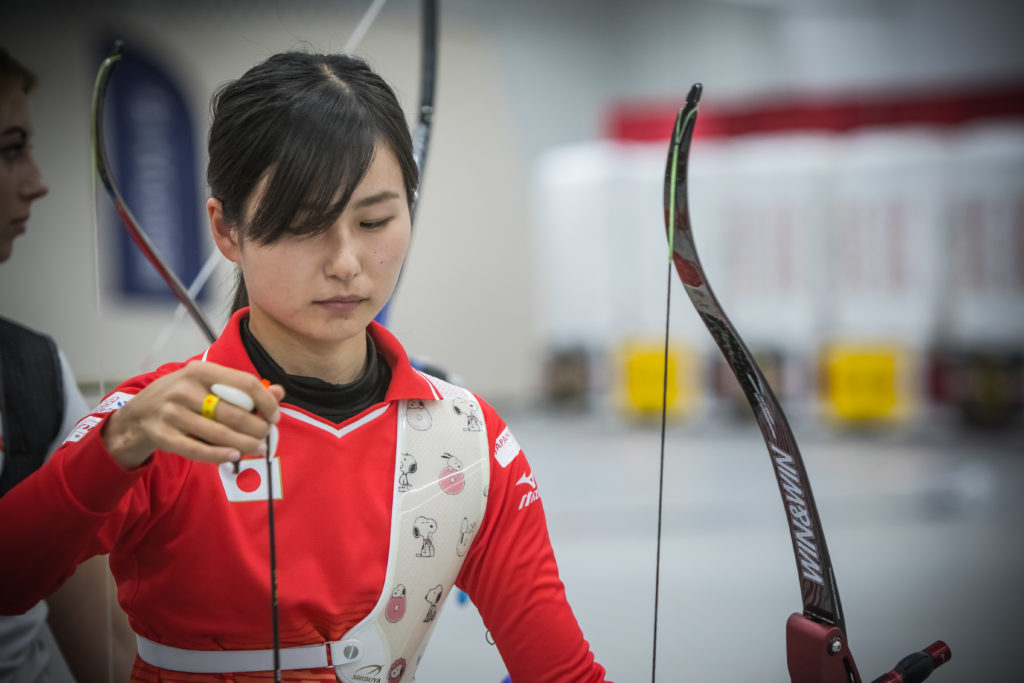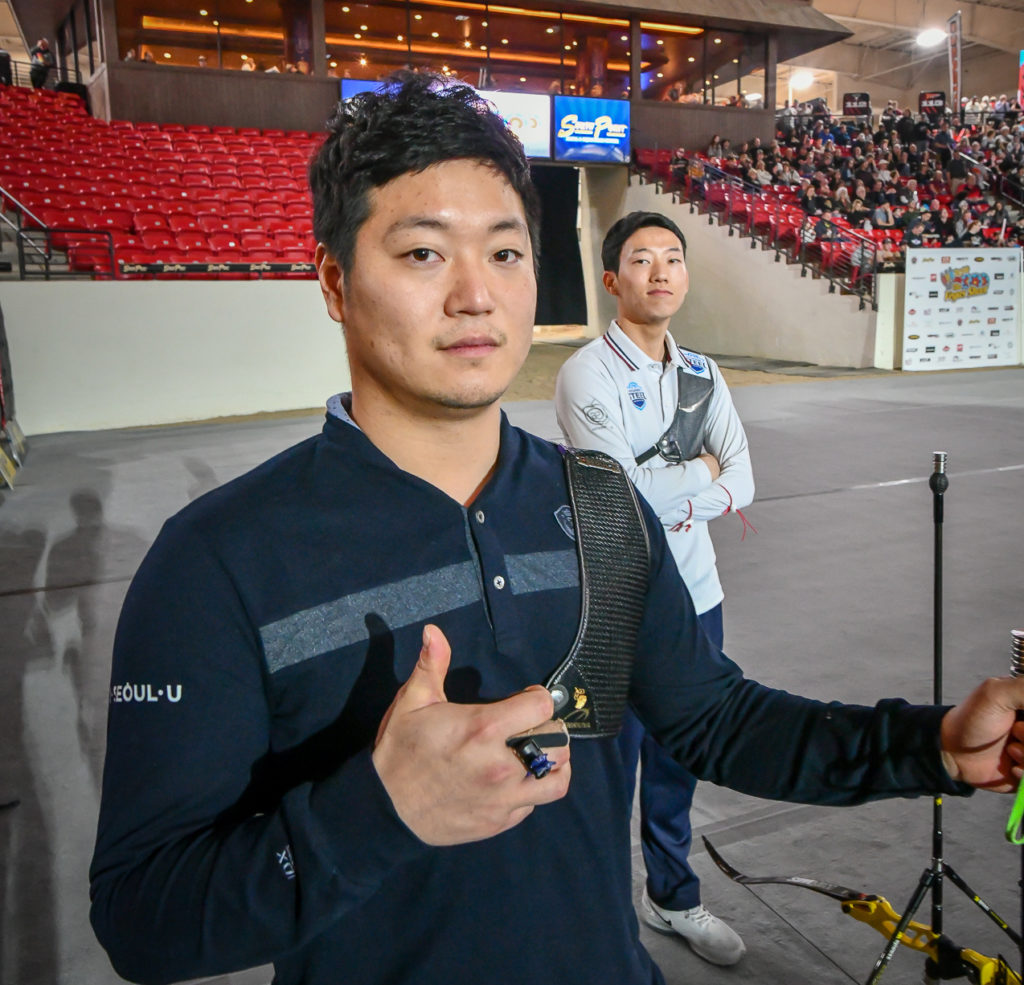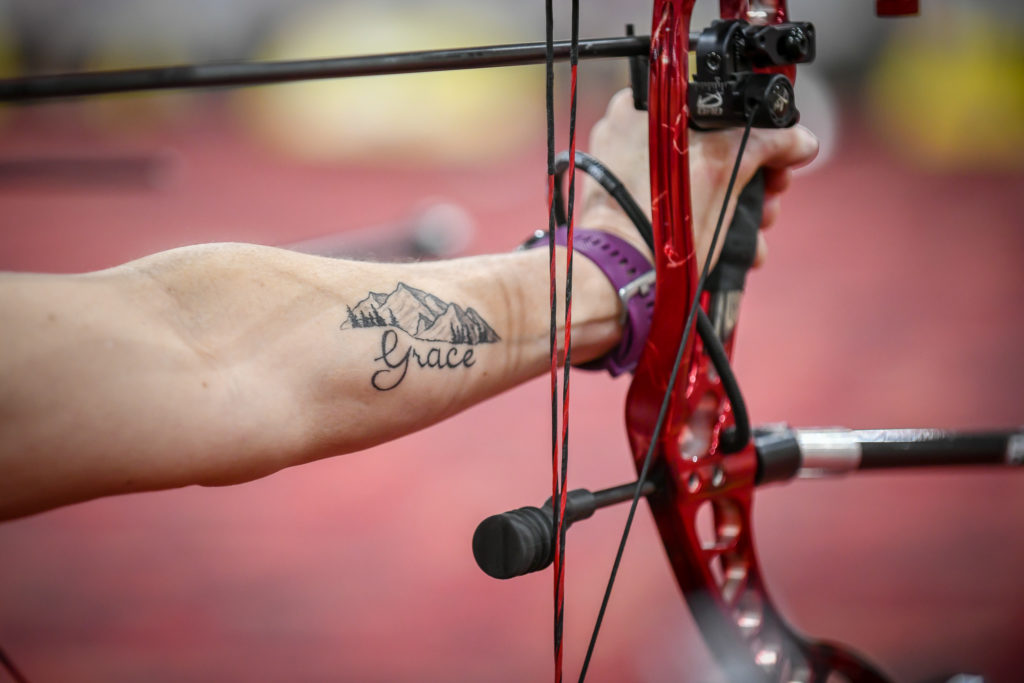Roy Rose is here to tell you what to do when it all goes pear-shaped at an archery tournament.

Our initial tournament experiences are always packed with mixed emotions. There’s anticipation, there’s natural excitement, there’s logical trepidation and finally of course the actuality of it all.
If your earliest venture to the competitive line occurs when you’re a mere youngster, then emotions of a negative nature tend to be swallowed up in the excitement of the occasion, but for the adult novice it will be a uniquely interesting experience which will play on your mental composure.
The truth is, and this is not meant to discourage, that no matter how well you prepare, you’re never as ready as you think you are. So how does one sway things to a positive reading?
The very first hurdle, quite obviously, is making the positive decision to take the plunge. I am constantly surprised at the huge percentage of club shooters who confine themselves to close range shooting, and who are reluctant to participate in the active competitive arena.
In my own club only half a dozen out of a hundred plus members regularly line up for competition events, even at a local level. Some clearly have legitimate reasons for not participating; not every one of us is inherently competitive, but the majority, although tempted, back away for a wide cross-section of reasons.
So accepting the challenge is the first assertive decision. Having done so, the prospective competitor needs to set realistic goals in harmony with their personal standard of accuracy, and set in place steps to make their initial undertaking an enjoyable and rewarding one.
There are positives about the way our sport works, which are extremely helpful if you’re a debutant, and even now after five decades of experience they remain part of my mental approach.
Firstly, no one has any concern about your scoring except you. This is sometimes difficult to accept for all kinds of reasons. Ours is an endeavour where archers of any age or discipline, can be grouped harmoniously, and enjoy and encourage each other.
Secondly, it can be a real opportunity to learn procedures. There is never a need to feel out of your depth, or out of place. Regardless of these pluses, understandably, there will be mental pressure, and the fluency we exhibit at practice will tend to desert us in this new environment.
Preparation, which keeps that mental composure under significant control, is essential, and there are steps the newcomer should have in place, in order to make the final wash-up a positive outing.
Whether your event is at home or away, be sure to give yourself more than ample time to arrive and settle, especially as the procedures prior to the tournament, will be new to you.
Find the courage to ask about any concern you may have, as fellow archers invariably will be happy to assist. The last thing you need is to be a late arriver, unfamiliar with procedures, and experience pre-tournament stress which is completely unnecessary.
You have enough to cope with mentally as the first practice arrow end becomes reality, to be already under stress because of poor equipment preparation and negligent time management.
Your practice sessions leading to the tournament are extremely important in enhancing your trust and composure levels. Pay particular attention to your shot execution time frame, because not only is it the critical component in accuracy attainment, but it is the critical component which can easily lose its fluency under pressure. I always utilise blank bale and eyes shut practice drills, prior to every session.

Logically, practising at the specific distances of the round to be contested will give you a quality sight mark and also a sensible average score potential. If you are able to shoot your average first us, then this will be a most satisfying result. Why? Because as I suggested at the outset, we just never seem to be as ready as we think we are.
No matter how much attention we pay to preparation, there will be never previously experienced stresses on our composure. The environment will be foreign, the clock becomes a contingency, and our form fluency will be tested, and attaining duplicative processing will make major demands.
Conquering these inevitable concerns will teach you plenty about yourself. It can be taxing, but it can also be exciting when supreme focus and determination yields a quality end.
Although you may approach this experience determined to remain calm and composed and without a score focus, the reality is we all have aspirations, and reaching your practice average is what we all hope will be the outcome.
Always work on the premise that in order to succeed we need to double our failure rate. Delight in every quality arrow shot, don’t beat yourself up over a less than satisfying end, and revel in the knowledge that next time the first occasion uncertainties will be considerably less demanding and your comfort level enhanced.
Familiarity breeds confidence and every time you participate you advance the curve of your tournament understanding. It’s a simple mandate that we all have a desire to improve, so we need to be fully invested, and learn to shoot with conviction.
It is pivotal to your archery satisfaction to embrace the challenge of competition. It will test you early on, but the rewards of becoming the best you can be, can give you a sporting reward than can last a lifetime.
Preparing correctly for a tournament
Some archers never learn from their technical mistakes. Don’t be one of them. Make a promise to yourself to make notes immediately during competition if anything is out of place, missing, or otherwise needs attention.
However, gear preparation is needless to say essential. You will of course be certain your bow is tuned, your sight marks are accurate and you have at least the basic back-up equipment, is vital. A modern recurve or compound bow is highly unlikely to let you down, but having spare essentials in case of an emergency, such as a back-up string, arrow rest, and tab (if you are a recurver) are logical, and relatively inexpensive items.
For the compounder, the main items, your bow and your release aid, are supremely reliable, but be sure your string loop is in good shape and bow-wise everything has been Allen key tightened. Your arrows should be closely checked, fletch-wise and nock-wise, initialled and numbered.
But archery equipment isn’t the only essential prep work. Think about clothing and shoes, food and drink, and getting in and out on time. Think through what you will do with spare time, if there are delays. Visualising the entire experience and what might happen in advance will help to reduce stress levels.
Overcoming nerves
We’re shooting competitive scores on our practice best, the bow feel great, the arrows are flying nicely, and grouping well, our sight marks are spot on, we’re aiming steady, so what can go wrong?
The tournament experience, particularly the early ones, can be quite harrowing, and the first premise we must absorb is that there is nothing abnormal about being nervous, it’s a human reality. So what causes this situation, and equally important, how can we overcome it?
The shooting process, whether recurve or compound or anything else, as we all are aware, involves the conscious and the subconscious mind. We have to allow the conscious mind to focus on either the aim, or the process at the back end, and the subconscious to deal solely with the other.

Let’s assume we are placing our conscious attention on the aim, then in practice we simply aim, aim, aim, and the subconscious completes our shot process. Our actual release system operates on a trust developed with serious practice.
Tournament pressure however, especially in our early events, tends to cause this trust to dissipate, a virtual fear factor creeps in, our conscious is not immersed in just aim, aim, aim, and somehow, with our trust gone, we think we can shoot better if we summon all our senses to the process.
What we learnt, and what we know, that is, keeping our conscious thought solely on the aim, the key to our success in practice, has gone out of the window.
We cannot shoot a surprise, unanticipated, subconscious shot, as we know full well we should (and can, in practice) when fear and mistrust have us jumping from the front half to the back half and back again. One of the great archery truths states that, “It is fine to be nervous, but it’s not okay to be fearful”.
All elite shooters experience varying degrees of nerves. It’s natural. Yes, some have developed superlative trust levels for their form and execution, by years of tournament exposure, and reproduce near perfect scores as a result.
Normality?
So having established the normality of nerves, and the loss of trust which nerves and adrenalin can do to you, the crucial question is how can we correct the problem?
Clearly we need to regain the trust which allows us to shoot correctly in practice, and transfer it to our tournament ambitions. So first we must accept that the loss of trust is not a disaster, merely a natural occurrence; your nerves and your sighting agitation levels have been heightened, causing your shot process and execution to lose their way.
Very obviously, exposure to the tournament situation on repeated occasions, must produce a major lowering of those anxieties, and allow you to get back to holding the conscious aim, uninterrupted, until the shot breaks.
Equally evident, is that fact that general unpressured practice is not going to get you there, otherwise this problem would not have arisen in the first place. We must create whatever we can in the way of pressure in our practice experiences, in order to accustom ourselves to the type of atmosphere the tournament day will present.
I have found that challenging myself to shoot for perfect scores in close range practice, by adjusting target size to my level of accuracy whereby a perfect round is possible, adds pressure to every shot from the first to the last. It’s artificial, yes, but by committing to the aim and learning to never let the aim be interrupted until that shot breaks is a great starting point.
Top archers also use noise distractions to heighten their practice focus. Anything you can manufacture that can add pressure to your thought processes will elevate your trust level.
You know you can only think of one thing at once, and if you can trust your thinking to be only on aiming until that shot breaks, each and every time, you have the mission accomplished. Tournaments, until you become an experienced participant will remain pressure situation, and only practice under pressure, can give you the final composure to be the best you can be.
So remember the key to excellence is to always do what you’re most afraid to do. If you have the desire you have the power, and success is the result when fear meets faith.
So enhance each and every practice experience with some type of pressure or stress, and launch yourself into the tournament scene, because familiarity breeds confidence, and confidence exhibits itself in the knowledge that you possess all you need to be successful.

